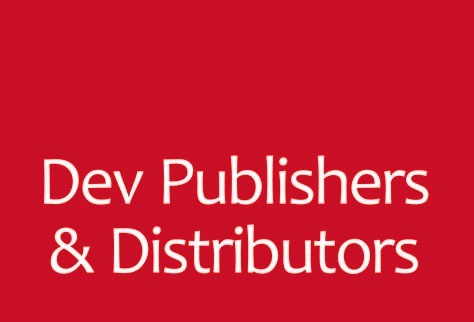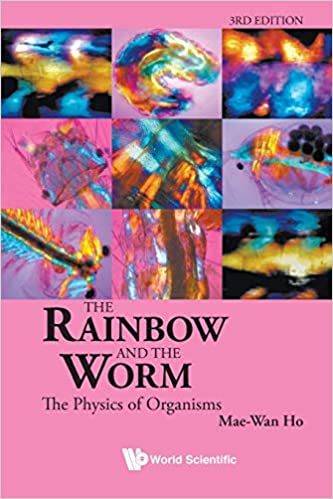Rainbow And The Worm, The: The Physics Of Organisms (3rd Edition)
About the Book
This highly unusual book began as a serious inquiry into Schrödinger’s question, “What is life?”, and as a celebration of life itself. It takes the reader on a voyage of discovery through many areas of contemporary physics, from non-equilibrium thermodynamics and quantum optics to liquid crystals and fractals, all necessary for illuminating the problem of life. In the process, the reader is treated to a rare and exquisite view of the organism, gaining novel insights not only into the physics, but also into “the poetry and meaning of being alive.”
This much-enlarged third edition includes new findings on the central role of biological water in organizing living processes; it also completes the author’s novel theory of the organism and its applications in ecology, physiology and brain science.
- Author: Mae-wan Ho
- Publisher: World Scientific (Exclusively distributed by Dev Publishers & Distributors)
- Edition: Third
- Year: 2021
- Dimension: 15 x 23 cm
- No. of Pages: 408
- Weight: 540 gm
- ISBN: 9780000989802
- Binding: Softcover
- Territory: South Asia
- Price: ₹ 1575
About the Author
Mae-Wan Ho, B.Sc. (First Class) and Ph.D. Biochemistry, Hong Kong University, embarked on a distinguished academic career that included Postdoctoral Fellow in Neurosciences, University of California at San Diego; Fellow of the National Genetics Foundation, USA; Senior Research Fellow, University of London; and Lecturer in Genetics and then Reader in Biology, Open University, UK. Her research evolved through biochemistry, molecular genetics and non-Darwinian evolution to the physics of organisms — a new discipline defined in the present book, first published in 1993 and the 2nd edition in 1998 – and is widely acclaimed by serious scientists and non-scientists alike. Her other books include Bioelectrodynamics and Biocommunication (1994), Bioenergetics (1995), Genetic Engineering: Dream or Nightmare? (1998, 1999, reprint with extended introduction in 2007), Living with the Fluid Genome (2003), Energy and Information Transfer in Biological Systems (2003), Unravelling AIDS (2005), Which Energy? (2006), Food Futures Now, Organic, Sustainable, Fossil Fuel Free (2008). Mae-Wan Ho now lives in London with her husband, and is Director and co-founder of the Institute of Science in Society (www.i-sis.org.uk) and Editor of Science in Society.
Table of Contents
- What Is It to Be Alive?
- Do Organisms Contravene the Second Law?
- Can the Second Law Cope with Organized Complexity?
- Energy Flow and Living Cycles
- How to Catch a Falling Electron
- Towards a Thermodynamics of Organised Complexity
- Sustainable Systems as Organisms
- The Seventy-Three Octaves of Nature’s Music
- Coherent Excitations of the Body Electric
- The Solid-State Cell
- ‘Life is a Little Electric Current’
- How Coherent Is the Organism? The Heartbeat of Health
- How Coherent Is the Organism? Sensitivity to Weak Electromagnetic Fields
- Life is All the Colors of the Rainbow in a Worm
- The Liquid Crystalline Organism
- Crystal Consciousness
- Liquid Crystalline Water
- Quantum Entanglement and Coherence
- Ignorance of the External Observer
- Time and Freewill


